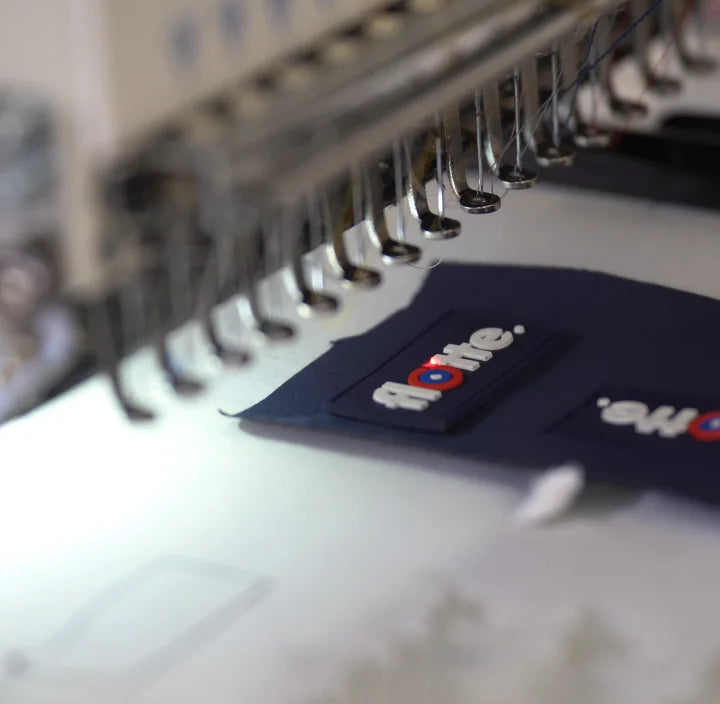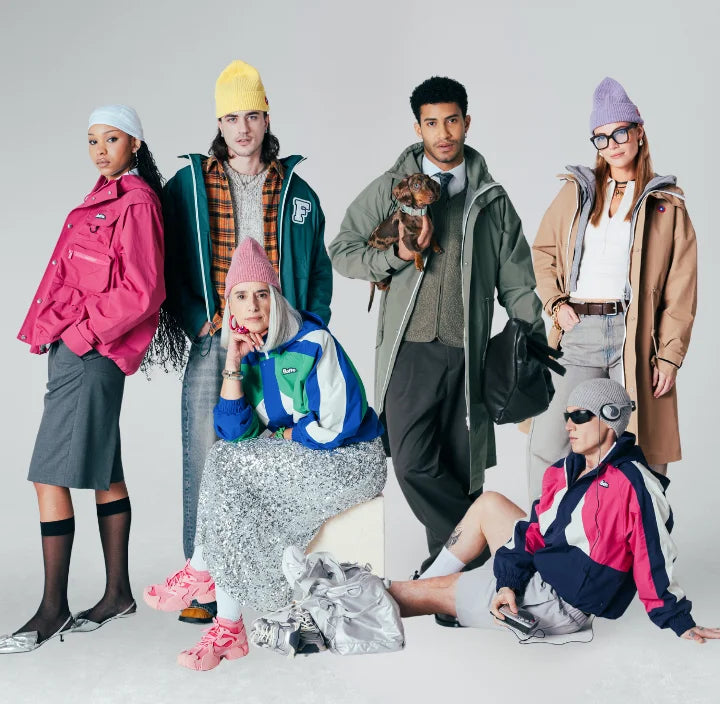Consuming more responsibly is a good start in the ecological approach, but producing responsibly is even better for changing common practices.
How can you produce responsibly as a fashion brand? Wanting to participate in the implementation and development of eco-responsible fashion is a fine project, but you have to be able to make it happen! In this respect, entrepreneurs and their innovative ideas have their place in a market where fast fashion reigns more than ever.
One of the key factors in creating a responsible and sustainableclothing line is undoubtedly the choice of partners. And yes, because a brand doesn't make itself, clothes need raw materials, fabrics and specific know-how to be designed and developed. So it's at this stage that much depends on the direction a company decides to take.

FLEET CHOICES FOR RESPECTFUL, ECO-RESPONSIBLE FASHION
Dupont Sorona: keeping warm while protecting animals
If you know us at all, you'll know that we develop several products, several styles, several cuts... And that our waterproof jackets are made from recycled fabrics. Our clothing ranges also include lined parkas, sleeveless down jackets and reversible down jackets.
To keep you warm, our reversible down jackets are stuffed with a plant-derived down called Sorona, manufactured by the Dupont company .
What is Sorona?
It's a polyester fiber designed to replace the use of feathers, and more generally animal fibers, in the stuffing of our jackets and coats. Made from corn glucose, it is 37% plant-derived fiber. This new, more responsible fiber was developed by Dupont in the 2000s, when awareness began to grow of the impact of synthetic materials on the environment. Sorona is intended as an alternative to materials such as elastane, which is widely criticized for its environmental impact.
Dupont Sorona fiber is as soft, resistant and insulating as elastane. But best of all, thanks to its plant-based fiber, it dries much faster than synthetic-fiber garments, and won't wrinkle or pilling as you're used to with other materials. The icing on the cake is that Sorona fiber wicks moisture quickly, compared with animal down.
Unlike synthetics, Sorona fiber is UV-resistant, so colors stay vibrant for as long as possible, increasing the life and quality of garments.
This new material is therefore a great alternative to the use of animal-based materials, while retaining the same properties, and even adding better ones. While this fiber doesn't have zero impact either, its manufacture requires no petroleum products and 30% less non-renewable energy than nylon. Still taking nylon manufacture as an example, creating Sorona reduces greenhouse gas emissionsby 63%.
In short, Sorona has emerged as a real solution in our quest to reduce environmental impact, and above all to protect animals. We're committed to producing eco-responsible fashion, but also to showing respect for our animal friends. That's why we choose our partners carefully.
Pure New Wool: ethical design
As part of our commitment to choosing materials that respect the environment and animals, we chose to work with Scottish company Mackie for the manufacture of our hats.
The company specializes in the manufacture of warm, high-quality wool accessories, and offers a wide range of yarns, colors and raw materials. We chose Pure New Wool, a Woolmark-certified wool .
What does Woolmark mean?
➡️ It's a certification that guarantees the quality, durability, resistance to washing and composition of certified wool.
We chose sheep's wool because of its renewable nature. Unlike angoras, which are stripped of their coats in a hurtful and highly unethical way, sheep's coats are sheared to ensure their well-being. You may have heard of it, but sheep need to be shorn about once a year to feel good about themselves. Without it, they'd be covered in their abundant wool and unable to live properly and freely.
Sheep's wool is an entirely renewable material: once shorn, it grows back. And even better, once used to make warm clothes for us furless humans, it remains a material that lasts over time. Either by being recycled when it is no longer useful to its owner, or by being resold. It can also be donated, reused in another form or by another person. In short, it's a material that creates long-lasting, timeless garments, and its value is undisputed.
Coming directly from the backs of sheep, wool is a totally natural material that is an integral part of biodiversity, and is biodegradable in both soil and water. Since it's not just a synthetic material that can't be recycled, it doesn't leave microplastic waste in nature.
So we've turned to wool, and in particular Pure New Wool, to ensure top quality and to stay true to our values.
That's it, we've told you all about our choice of route, partners and values. Flotte has always been keen tomake a difference at its own level, to participate in the development ofnew fashions that are more respectful of the environment and biodiversity, and it's with all these small steps that our weight for this cause is growing.























Leave a comment